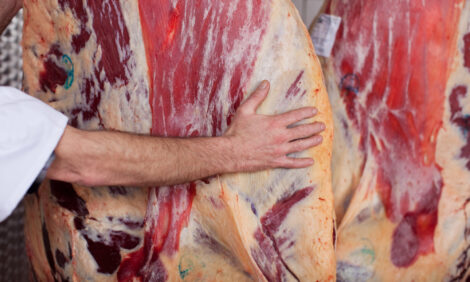



Research into Bovine Ephemeral Fever
AUSTRALIA - Following concern from producers about increases in the incidence of Bovine Ephemeral Fever (BEF), research is being undertaken to confirm the effectiveness of the current vaccine and develop a single-dose option.
BEF, or three-day sickness, is transmitted by biting insects in tropical and subtropical areas, but recent outbreaks have also occurred further south.
MLA’s Animal Health and Welfare Project Manager, Johann Schroder said BEF affects joints, tendons and muscles in cattle and is a particular concern in larger animals.
“Improved animal production means beef cattle now reach a heavier weight at an earlier age, which also changes the clinical picture of the disease,” Mr Schroder said.
“Infected animals are reluctant to move and become recumbent, which can lead to further complications and even death.”
BEF is estimated to cost industry A$90–100 million a year and this MLA Donor Company research has confirmed that the Websters BEF vaccine* is effective in the Australian market when applied according to the manufacturer’s instructions.
The vaccine was shown to be effective against a range of BEF viruses collected in the field from 1980–2011, indicating no significant change to the virus over this time period.
The next phase of the project is to develop an inactivated single dose vaccine that may lead to widespread use of the vaccination as an effective means of controlling BEF outbreaks in Australia.
TheCattleSite News Desk


